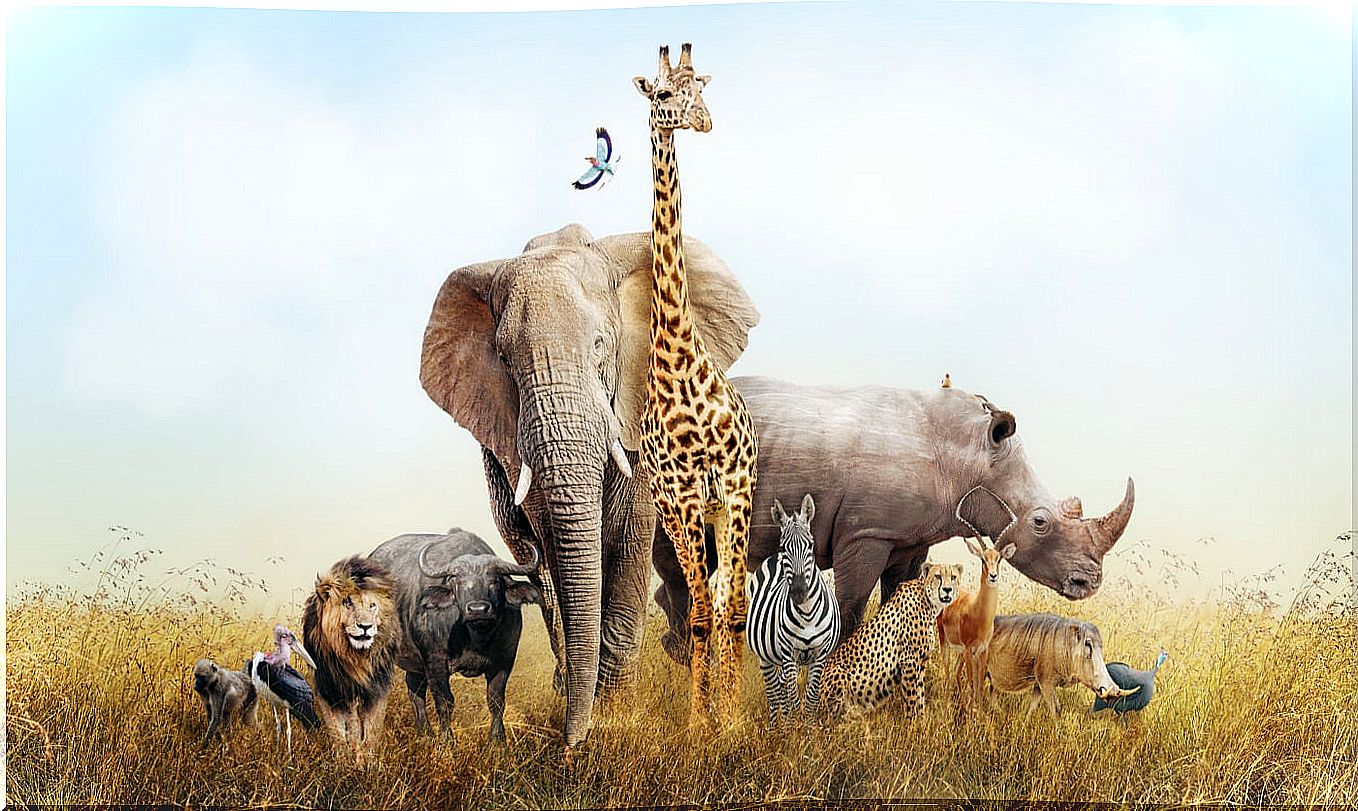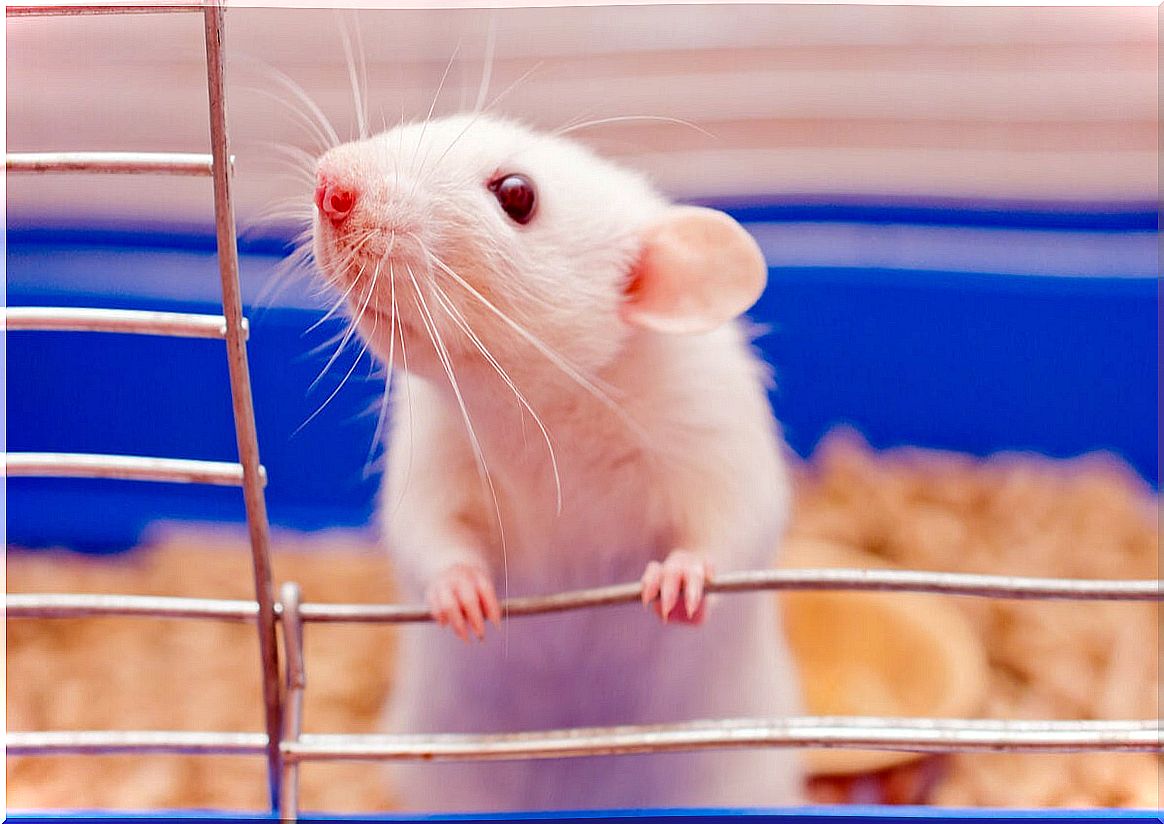What Is Comparative Psychology?

Most published studies support the idea that animals feel, think, and even have something close to what we know as personality. In addition, similarities have been found between their behavior and humans -or that of other species-, so comparative psychology assumed the task of identifying what unites and differentiates us.
Sometimes this branch is confused with ethology, since both study animal behavior. However, as you will see later, its methods and objectives are different, as well as its beginnings.
In this article you will be able to know the definition, origins and limits of this discipline. If you want to know what makes us similar to other animals -psychologically speaking-, the studies associated with this branch will be interesting for you.
What is comparative psychology?

Comparative psychology is the branch of psychology that tries to understand the behavior and mental life of animals, trying to discover the characteristics that have evolved in a convergent or parallel way. It also studies the differences at the level of behavior between species.
Origins of comparative psychology
Although the comparison between the animal mind and the human mind has always had a certain presence in psychology and philosophy, it was Darwin who practically placed it at the center. His theory proposed that the evolutionary continuity between animals and humans at the biological level could also be extended to other levels.
Comparative psychology was founded in Great Britain out of Darwinism. Those who started the branch tried to do with behavior the same thing that biologists did with anatomy: define the levels of complexity of their object of study, even talking about a possible mind, more or less sophisticated, that would mediate these behaviors. .
Differences between comparative psychology and ethology
Although the boundary is not clear -as its object of study was similar-, important clues to know if we are on one side or the other:
- Ethology has its origins in Europe, while comparative psychology became popular in the United States after being created in Great Britain.
- Comparative psychology is part of psychology and ethology is closer to the field of zoology.
- Ethology places more emphasis on the instinct and natural behavior of the species in their own environment, while comparative psychology places more emphasis on the learning and development of theories of behavior.
- The methods in comparative psychology are experimental, that is, they focus on laboratory work. Instead, ethology is based on field observation, in a context where the observer does not take part in any way.
The comparative method
The method used by comparative psychology, how could it be otherwise, is the comparative. With this methodology, the psychological processes in certain species are studied and an attempt is made to extrapolate the conclusions drawn to different ones.
Experimental studies are focused on finding out at what point in evolutionary history certain psychological characteristics appear, such as learning and memory. Once this point has been determined, it is a matter of establishing how this capacity has evolved until it reaches the animal species that has it most developed.
The moral discussion of the experimental method

Comparative psychology studies are usually carried out in laboratories, which is why many of them receive quite a lot of criticism, since often, to control variables, the circumstances or the environments that are created are too artificial.
For some experts, the behavior of non-human animals does not have validity outside their natural environment, since captivity would be a condition capable of distorting any result. In addition, fortunately in recent years we have made great strides in the ethical principles that are applied in animal studies.
So if there are so many weaknesses, why are these studies done in labs? Some compelling reasons for this practice would be the following:
- It is cheaper and faster.
- Possible unforeseen events that occur in nature, such as predation or meteorological events, are avoided.
- It allows to isolate much better the variables to study.
- Disregarding the influence of the natural environment makes it easier to draw conclusions about human behavior, as they are considered “clean” results.
Some of the studies that we consider classics today, such as that of Harry Harlow, highlight the need for a new approach to this discipline. In this example, attachment styles were studied in macaques, separating the young from the mother as soon as they were born. The little monkeys were kept in sensory isolation cells and made to choose between a monkey-shaped doll and a bottle with a bottle.
Beyond the discussions, the knowledge of comparative psychology has a value. Not only do they give us a more global perspective of our own nature, but it also allows us to understand others that are part of our ecosystems, with which we somehow coexist.









